#i genuinely love the way they incorporate shakespeare lines
Text
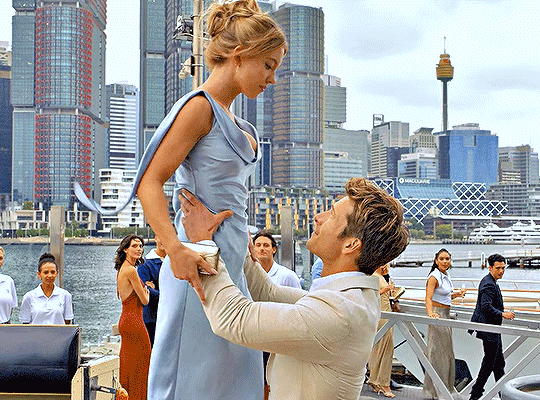


I know we shall have reveling tonight.
ANYONE BUT YOU (2023)
dir. Will Gluck
#anyone but you#glen powell#sydney sweeney#ben x bea#filmgifs#movieedit#filmedit#anyonebutyouedit#cinematv#filmtvdaily#tvfilmdaily#romanceedit#romancegifs#*#i genuinely love the way they incorporate shakespeare lines
252 notes
·
View notes
Text
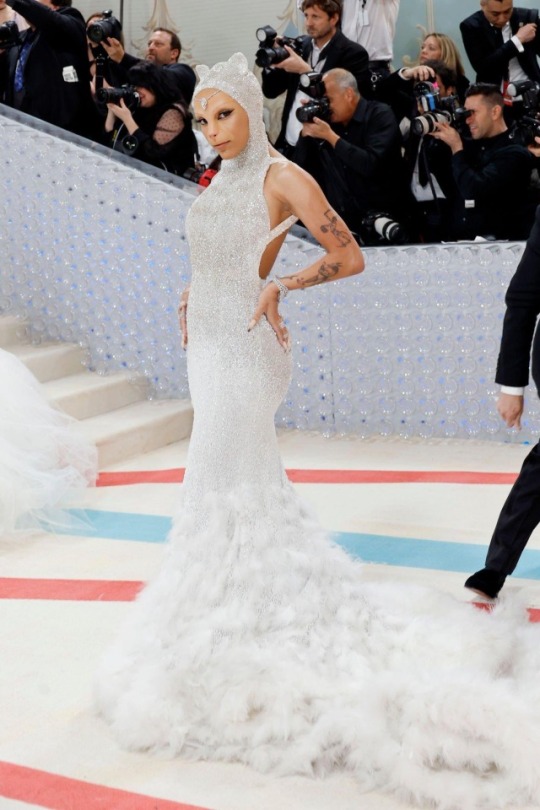
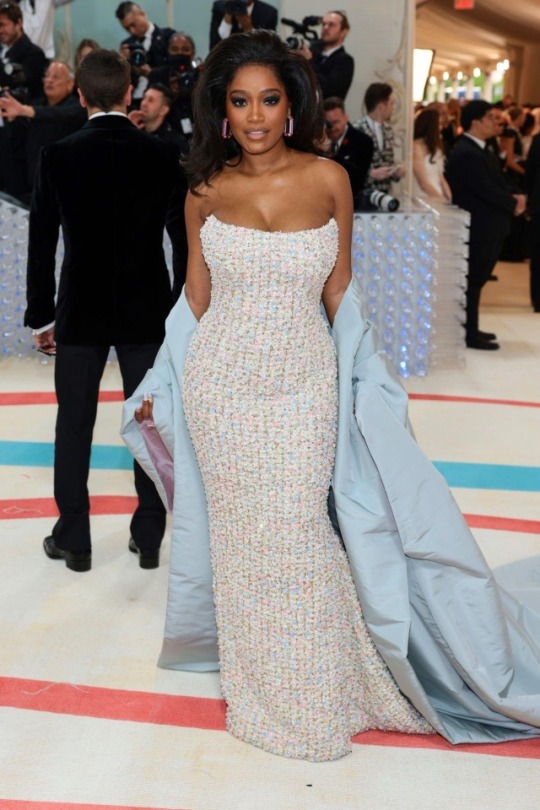
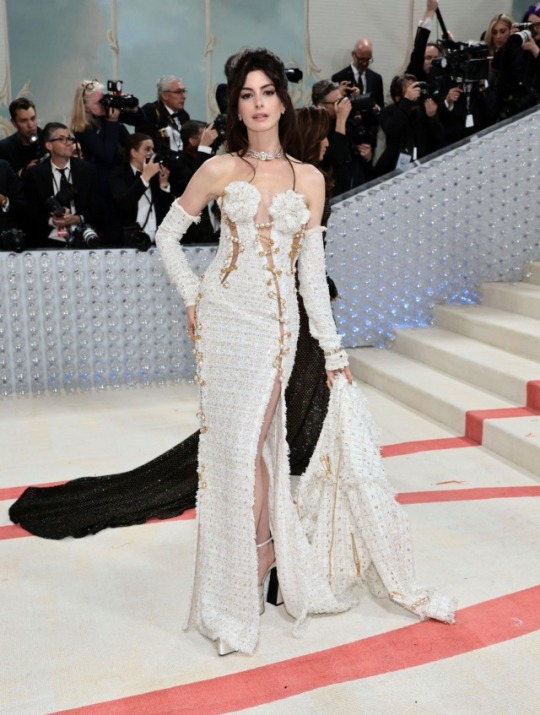

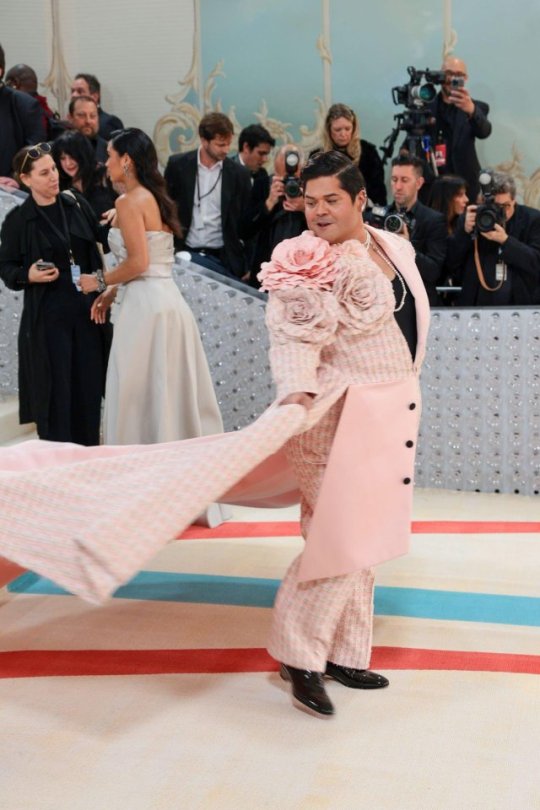
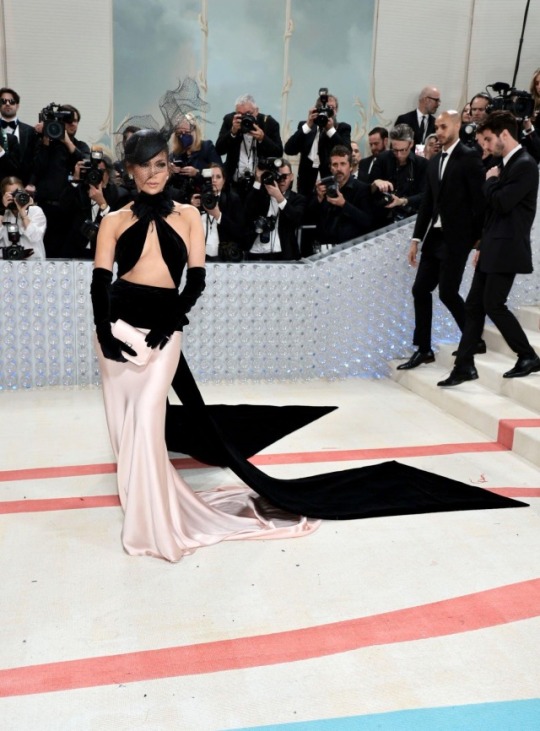
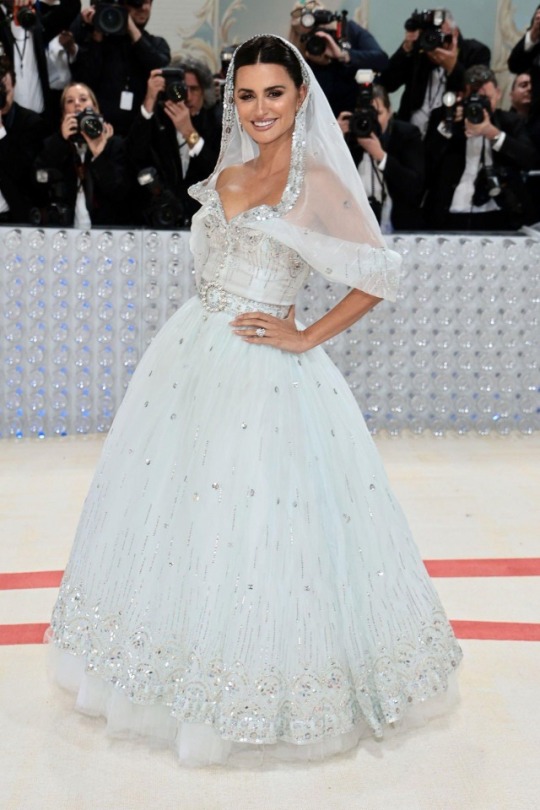
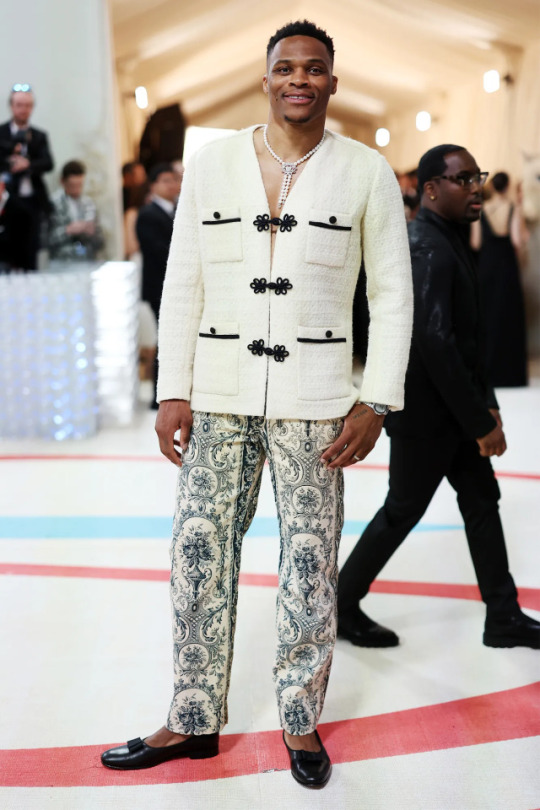
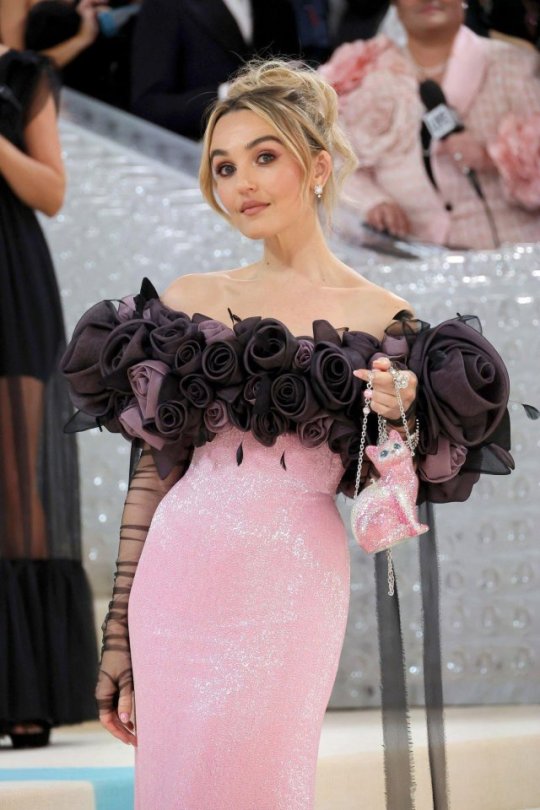
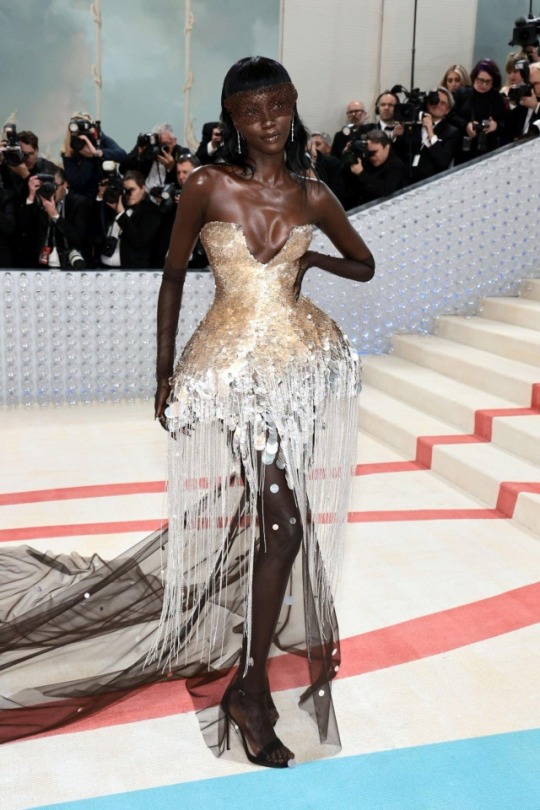
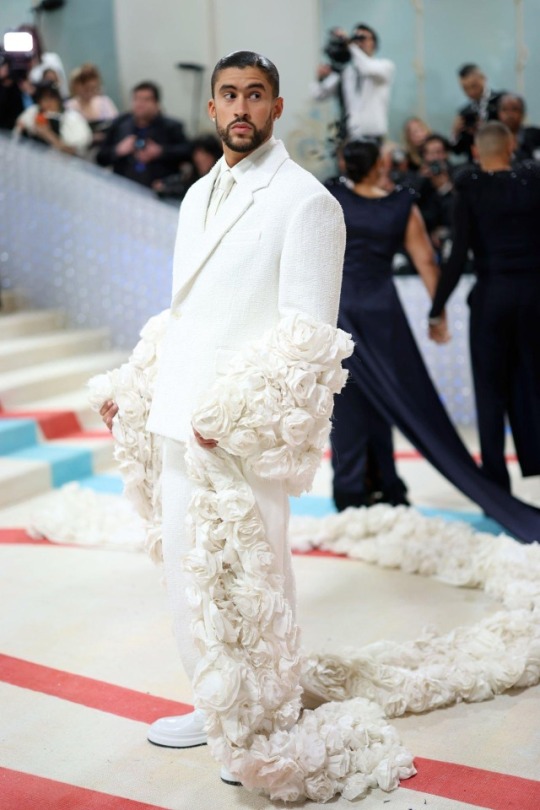
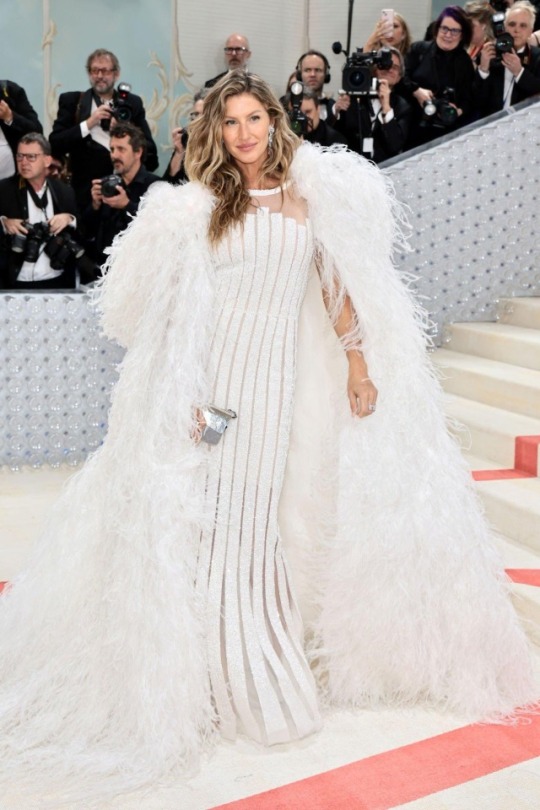
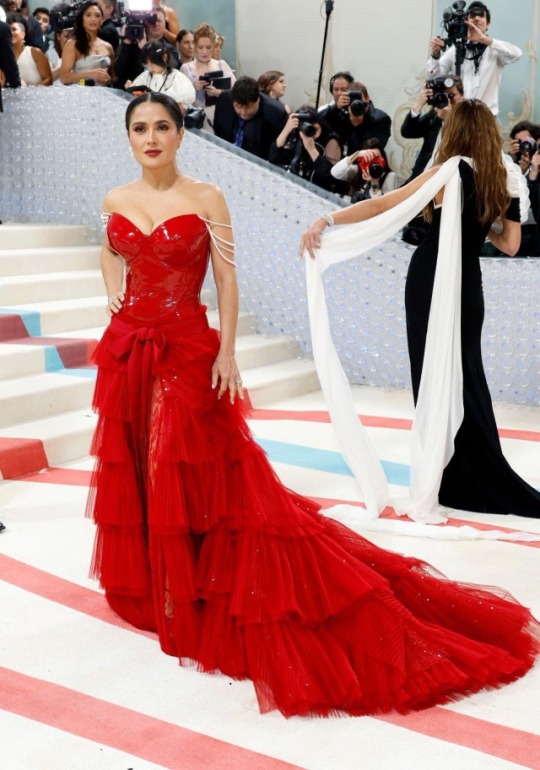
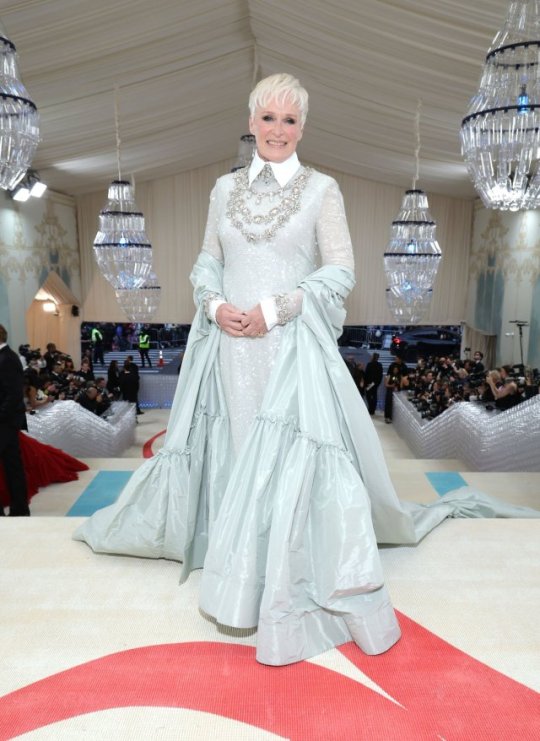
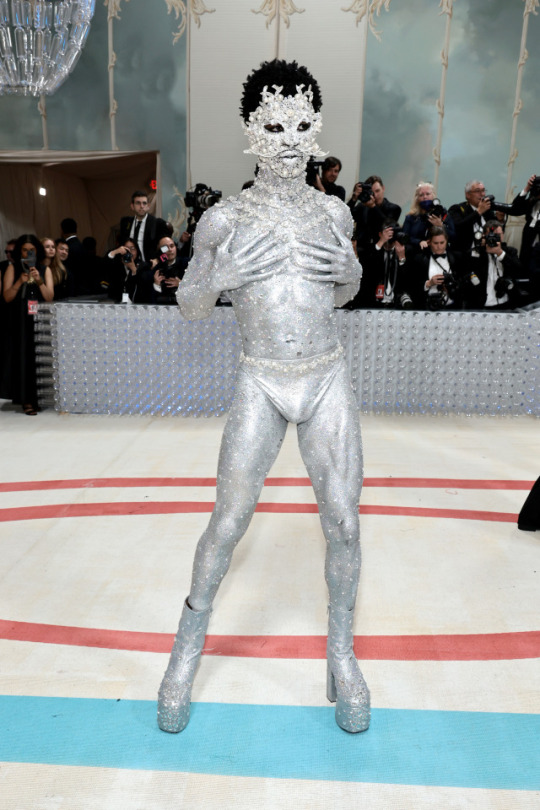
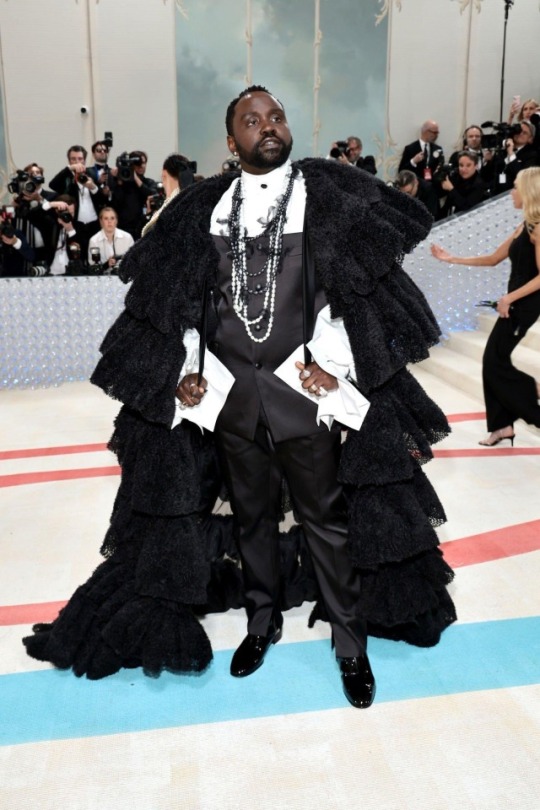
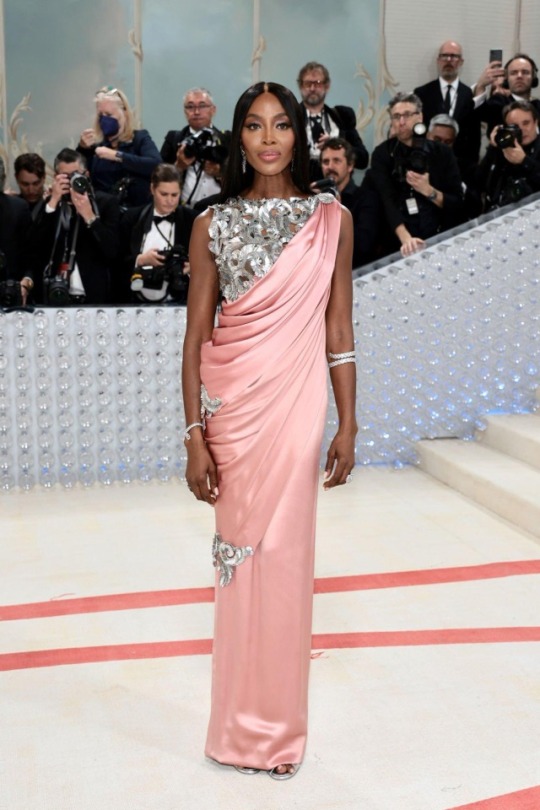
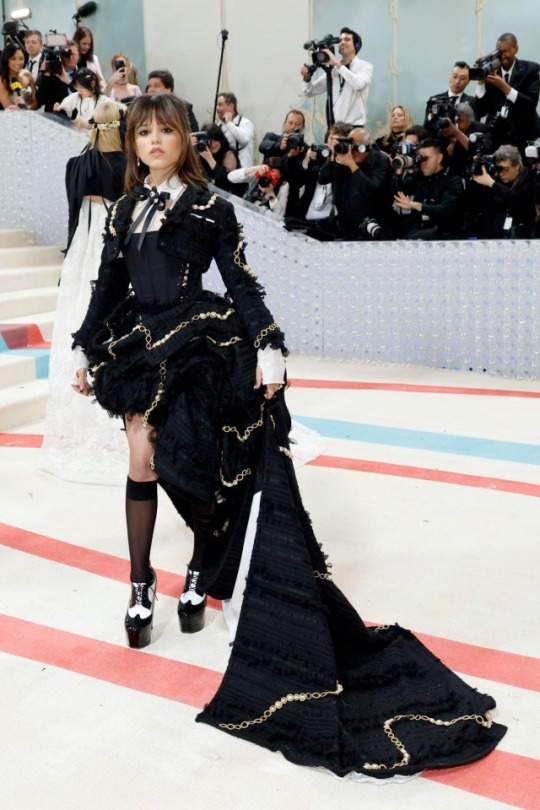
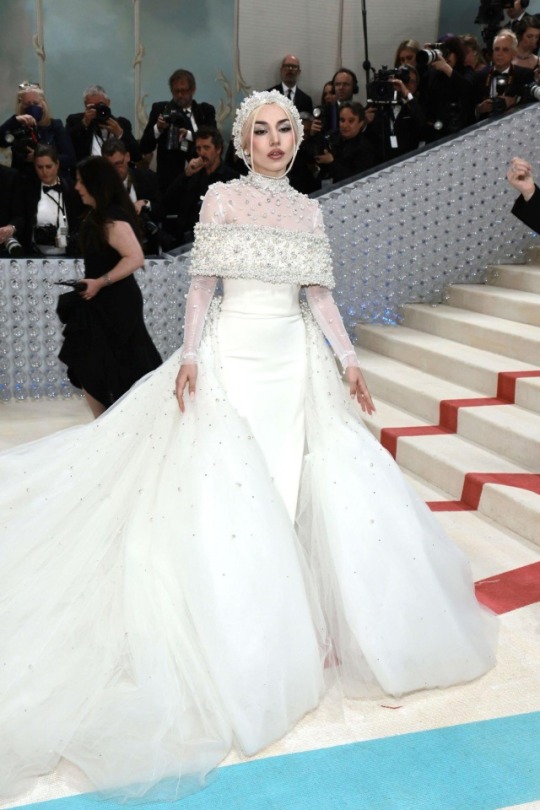
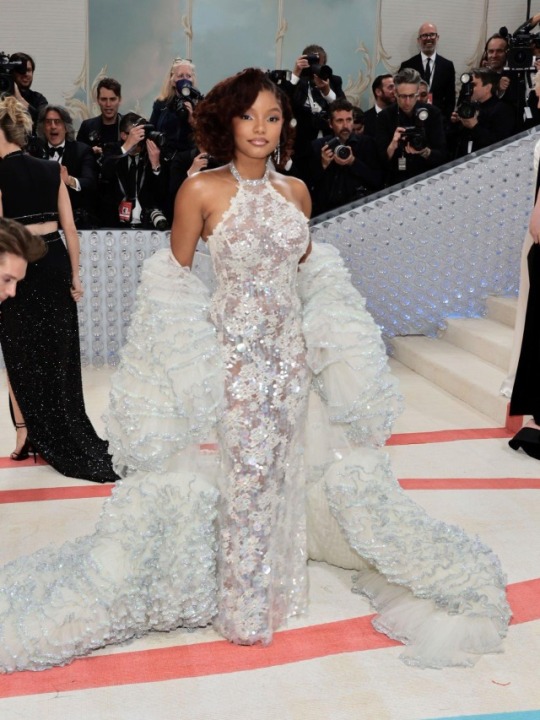
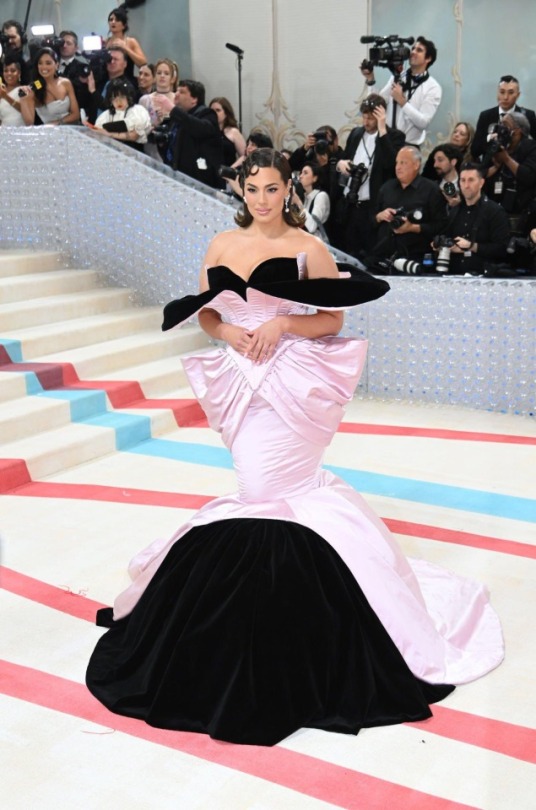
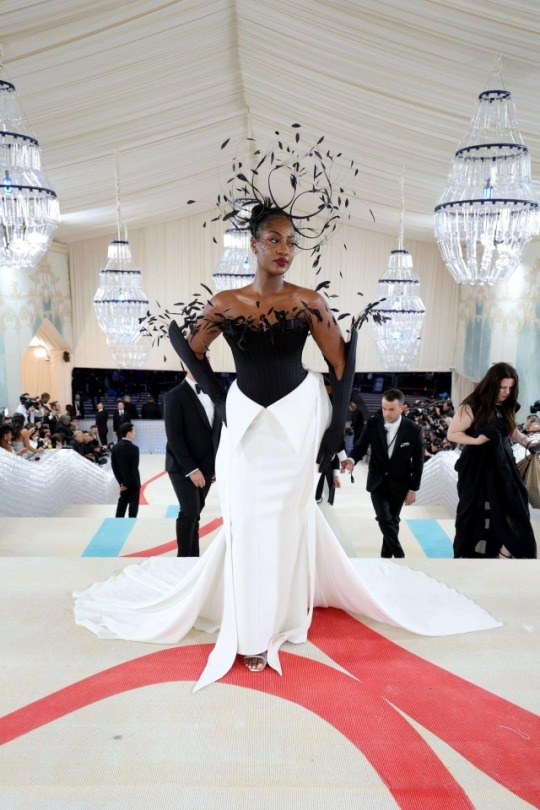
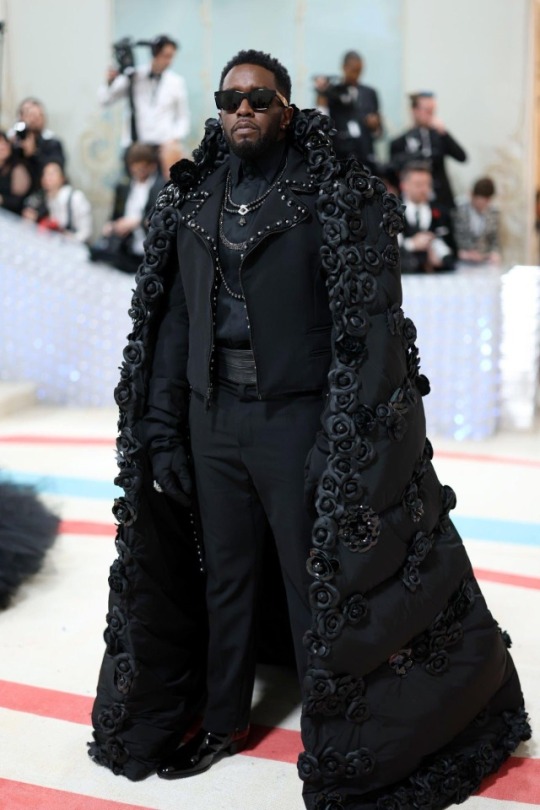
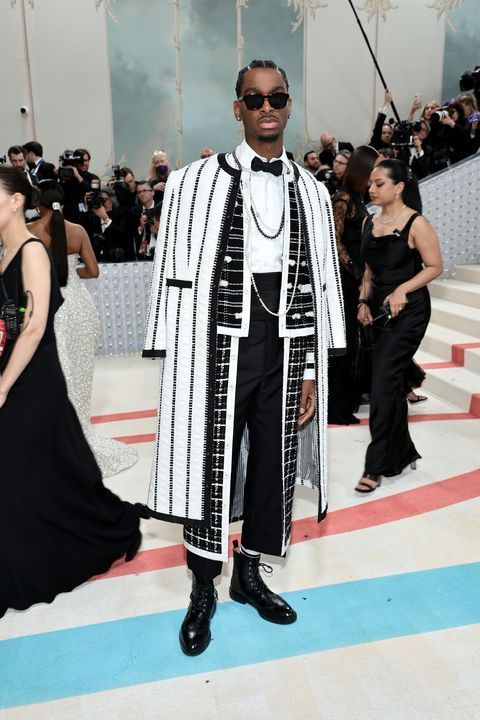
In no particular order, my top looks from the 2023 Met Gala "Karl Lagerfeld: A Line in Beauty"
My thoughts are below, but I'll be honest, I didn't really do any background research this year because there wasn't much to be done. These are really just my opinions on whether or not I liked the look.
Ironically, I felt this was a very mediocre year, which led to me having a lot more favorites than usual because they were kind of all on the same level. In previous years I would have separated this into multiple posts, but I don't really see the point.
Doja Cat: I wanted someone to dress up as Choupette the cat and she delivered, and managed to do so in a way that was still fitting for the event
Keke Palmer: She looked amazing, and really captured the Chanel look with the bombshell hair and the extremely bedazzled tweed. I honestly don't want to think about how much that dress weighed
Anne Hathaway: Besides that fact that I love everything Anne Hathaway has ever done, this dress was the perfect combination of honoring Lagerfeld's style while also incorporating it into the style of the brand she was representing (Versace). It had tweed and pearls, but also sex appeal and safety pins
Cardi B: First, I just want to appreciate her ongoing commitment to high fashion and the fact that she had three (3) completely separate looks. This particular Miss Sohee look was my favorite because she's living out my glinda barbie mermaid fairy princess dreams
Harvey Guillen: This was one of the first looks I saw of the night, and still one of my favorites. It has all the Lagerfeld style essentials, but still manages to look unique. Plus, creative menswear always gets extra points because the bar is painfully low, though this year was a surprisingly pleasant exception.
Jennifer Lopez: It's not the most creative look, but it's right up my alley and honestly, do we expect anything groundbreaking from JLo? She's always going to show up in something pretty that's decently on theme enough for me to just focus on whether or not I like it. And this immediately makes me think of classic Chanel.
Penelope Cruz: She was a co-host, it's vintage Chanel couture from the 80's, and she's one of the people I most heavily associate with Lagerfeld and Chanel. A win all around.
Russell Westbrook: I really want to give Russell Westbrook credit for always showing up to the Met Gala and really going for it. I love all the details: the pearl necklace, the tweed blazer with floral clasps, the bows on the shoes
Chloe Fineman: Another first look that turned out to be a favorite. This again had all the necessary design elements without feeling like a cheap knockoff. Also major points for the bedazzled cat bag.
Anok Yai: I don't know and I don't care how this relates to theme, she looked like a goddess
Bad Bunny: Another man not only doing something interesting but incorporating the theme? Genuinely shocking. Obviously I loved the OTT floral cape, but I really loved the ode to c. 2005 Chanel with the backless suit and backwards necklace.
Gisele: She wore the same dress from an iconic 2007 editorial, proving not only that she still has it, but that she's always had it. A true supermodel.
Salma Hayek: She looked hot, I don't know what else you want me to say about it. Also it had color, which nothing else did. My eyes were starving for color.
Glenn Close: For starters, she needed an entire team to carry her train so props for that. She brought the drama, the glitz, and the "age is just a number so shut the hell up" glamor.
Lil Nas X: This was, for lack of a better phrase, a cheeks out, bedazzled, balls to the wall look. The Choupette inspiration is more obvious when he was inside with the fur (ish?) coat on, but I honestly didn't care. I needed a moment and he delivered. Though I do wonder (1) how long it took to bedazzle him and (2) will he every fully be de-glittered.
Brian Tyree Henry: I don't know if it's the pose or the cape, but it's giving me dramatic shakespeare vibes and I appreciate it.
Naomi Campbell: The only issue I have with this look is that they called 2010 Chanel Couture "vintage" and I can't accept that. Beyond that, I mean, it's Naomi Campbell in Chanel Couture. I was also dying for any semblance of color at this point and somehow this dress was among the most colorful
Jenna Ortega: The perfect combination of chanel tweed cropped blazer/mini skirt and the Wednesday Addams aesthetic. Which was interesting because I thought she was trying to move away from that but I don't care it was a successful look
Ava Max: Chanel was known for the haute couture bride, and this not only really captures that, it was one of the most and quite honestly only majorly dramatic looks of the night
Halle Bailey: She looked like a mermaid and I love that for her
Ashley Graham: I would have loved this look regardless, but after seeing the dress it was modeled after, I also think it was one of the best tributes of the night
Tems: Has she ever looked bad on a red carpet? Her headpieces are just getting bigger and more elaborate and I see nothing wrong with that.
Diddy: I love the drama + the floral cape, though I am left wondering how he didn't faint under all of that. Also, you can roast me all you want for captioning his post with Sean Combs but that's what was given to the AP so it's what I went with.
Shai Gilgeous Alexander: A final man who followed the theme and wore something interesting, arguably more interesting than some of the women. I actually think I like this look better without the coat over it.
#met gala#met gala 2023#red carpet#fashion faves#fashion favorites#met gala favorites#to quote the princess diaries#your majesty paolo is exhausted
408 notes
·
View notes
Text
@morethanfantasy i’m in the airport and i have a few ophelia thoughts left rattling around in my skull so let’s do this
i think the thing that makes ophelia so fascinating to me out of all the characters in hamlet is that we never really get to see what she’s thinking. every scene she’s in, every interaction she has, is colored in a certain level of uncertainty, because the complicated power dynamics involved mean it’s hard to tell what’s genuine and what’s a carefully curated persona to survive in elsinore. take her first scene with polonius. i’ve played it several different ways in the past: she’s genuinely confused about hamlet and wants his advice, she’s fully in love but he’s kinda talking her out of it, she’s rolling her eyes behind his back… we don’t actually ever get her take on this scene, so textually any of them could be a correct read.
The only time that Ophelia speaks directly to the audience and not to another character is directly after the nunnery scene. Hamlet runs out and Ophelia spends a few lines lamenting his change (lines that tell us a lot about the previous dynamics at elsinore and i think could be incorporated into design and directing choices a lot more), and then Polonius and Claudius leave their hiding place and discuss what to do next.
While this monologue could be read as Ophelia telling us her true feelings, I have two problems with that. First: she doesn’t? really? say anything?? don’t get me wrong, hamlet being the rose of elsinore’s court is fascinating, but it doesn’t tell us anything about how ophelia feels. it doesn’t tell us if she loves him, if she stopped loving him, if they’ve had sex and she’s freaking out cause now he’s said that he’ll never marry her (something that she may well be thinking based on the mad scenes). even when talking to the audience, she’s putting up a bit of a front. she’s telling us much less than we think she is.
Second (and this may explain the first): the entire conceit of this scene is that ophelia is being observed. claudius and polonius are watching from hiding the whole time, and while hamlet may or may not know that, ophelia is perfectly aware of it the whole time. she’s still performing because she’s still being watched. she can’t scream in anger or punch the wall or laugh hysterically or respond with any genuine emotional reaction because she’s still under her father and the king’s censorious eyes. It’s appropriate. The one time ophelia seems to speak her own thoughts, and she’s not really alone, just pretending to be, in front of the most powerful people in the world. hamlet may be fucking around with metatheatricality, but ophelia’s the one who’s really on a stage.
a lot of shakespeare plays have characters that never really talk to the audience directly. it’s normal. but it would be a very different experience if we never knew what juliet was feeling, or whether regan truly loved her father, or if malcolm wanted his country back. and it’s especially fascinating that we have this inscrutable character here, in the introspection play! i’d argue that we can tell what pretty much any of the other characters are feeling based on genuine conversations and monologues, which makes ophelia a fascinating foil to the obsessively introspective hamlet. how much different would the story be if the perspectives were flipped, if we got ophelia’s thoughts and not hamlet’s? would her inner monologue look like his or something completely different? i could spend YEARS trying to develop a coherent idea of ophelia’s psyche and i’d never know if it’s true.
and of COURSE that expresses itself in ophelia’s madness. hamlet makes jokes and puns and messes with his clothes and acts like he’s smarter than everyone else. ophelia starts fully speaking in code. you need 5 layers of context, some of which is known only by her, to follow what she’s saying. it does seem like it all has a meaning, though. my read on it is that for the first time in her life ophelia is able to say exactly what she thinks, without couching it in politics or politeness, by using songs and references and obliqueness so that none of the people around her have any idea what she’s saying to their faces. is that intentional on her part? up to interpretation. she might have truly been driven mad by grief and fear and powerlessness and this is the only way she can make sense of the world now. she may have simply decided to quit the power games of elsinore and is entirely lucid. (side note, it’s definitely relevant that scholars have been having the is-the-madness-real discussion about both hamlet and ophelia for ages. more parallels!) the point is, we’ll never know. we’ll never know if her death was a suicide, an accident, or a murder. in a play where we know everything about hamlet, we know next to nothing about ophelia.
personally, i think that tells us quite a lot. hamlet has some fascinating power dynamics, and the fact that even the structure of the play gives hamlet freedom to express himself at length while taking away ophelia’s voice is a clever way to show their positions in elsinore and the way that the social structure traps characters in the narrative. it also shows us our own blind spots as an audience, if we’re willing to see them. while the play is all too willing to show us the story of hamlet, there’s another story going on that it does its best to obscure from us. by the time we see that something invisible is going on with ophelia, it’s too late. it’s the mad scene and she’s already gone.
#hamlet#shakespeare#this is just one aspect of her character that i find so cool#but i could go on#there’s a lot you can do with the character#i love her so so much#hoo boy this is a long one isn’t it
107 notes
·
View notes
Note
Hi! Do you think RWBY as a story is inconsistent in tone? It is a criticism I keep seeing around? But what exactly means to have tonal inconsistency? Can you give me an example?
Nope.
I'm actually surprised to read this. Maybe because I'm on the outskirts of the fandom, but I really would not have put "tonal inconsistency" in like, a top 10 list of things I thought people might label a flaw of RWBY's. It had honestly never occurred to me.
I'd actually call RWBY extremely tonally consistent, which is hard to maintain over 9 volumes and counting.
I'm curious if these posts elaborated at all about how or what makes it feel tonally inconsistent--are there examples? Because I can't think of one. Since I don't know, I'm going to have to speculate.
Is it about fairy tale stories dealing with death? Because every fairy tale deals with death; that's kind of the central core of the vast majority of fairy tales.
Is it because this volume certainly contained RWBY's darkest episode ever? Because it did, but the descent to the underworld and meeting with the goddess is a part of the heroine's journey. Stories always get darker before they get better. Plus, I don't see how anyone could think that the volume wouldn't get very dark considering we just tackled genocide and the sunshine character died.

I also think that Volume 9 has been extremely clear since the first teaser way back in 2021 that it would deal with Ruby's mental health. The opening line is "you should never have been born." Ruby then has a literal panic attack. She faints in horror when she's told about her friend dying.
That's just episode 1.
I guess people might be thrown by the juxtaposition of simplified life, which is the essence of the Ever After, with a complex topic like mental health? But I actually think that's quite brilliant. When you're extremely mentally unwell, which I have been before, things do seem to paradoxically become simpler even as the complexity overwhelms you. Things can seem black and white. Good and bad. And you? You're bad.
Idk, no one's experience is exactly the same, but to me it rang honest. It's fine if others felt differently.
Was it about mixing humor and dark topics? But like most stories do that. I mean, going back to damn Shakespeare, at likes 45% of each of his tragedies are dick jokes. The Bard loved a dick joke. It did not even have to be a good dick joke for the Bard to love it and include it in literature to be read by billions. I mean, I'm slightly hyperbolizing about the percentages, but you literally have Hamlet lamenting about going insane and contemplating suicide in one of the most haunting soliloquies in the English language (Act 3 scene 1's "To Be or Not To Be..." ) and then making numerous dick jokes in the very next scene (Act 3 scene 2). Even when it's all gone to the grave (heh) in Act 5, Hamlet takes time to hold up a jester's skull and joke about "alas, poor Yorick."
Like, yes, there are jarring ways to incorporate humor with tragedy. I don't think RWBY is doing that, though. The last episode had some genuinely heartwarming moments of realization (the paper pleasers) and tension, and then we had Cat!Neo still being a complete cat and lolling about like "Oh HEY GUYS." (The cat is hilarious, and they've always been like this.)
The entirety of Volume 9 has dealt with grief. Even the fight with the Red Prince is the prince throwing a tantrum mingled with grief.
Idk, stories do generally progress. They go from good to bad to good to bad to worse to how is this even worser to okay there's some hope to catharsis. If you can't connect the dots and see the progression, that's tonal inconsistency. If you can, and you absolutely can with RWBY not just in Volume 9 but the entire show as a whole, then... it's not tonally inconsistent.
The theme of identity has been present from the beginning of the show. Ruby looking at a grave and hence dealing with grief is one of the founding images of the entire series. To fully explore death, characters generally have to potentially end up there at some point. That Ruby would wonder whether or not she should have been born is obvious from the first minute of this season. Her spiral has gotten worse and worse, but if you paid attention, you could see it happening.

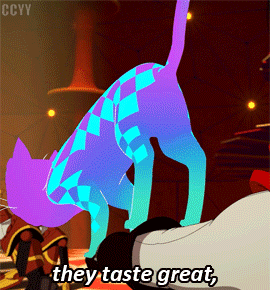

Again, the show began as a boarding school story with some pretty dark themes (abusive relationships, parental abandonment, parental death). That the darker stuff becomes explored more fully is pretty par for the course. Even like, again, Harry Potter gets progressively more dark. So do the Avengers movies. It's like, normal.
Idk, to me saying RWBY is tonally inconsistent for any of these reasons sounds like saying, I don't know, Othello is tonally inconsistent because the first scene has Othello and Desdemona standing up against bigotry for their love and their marriage is not annulled; therefore the play should end in the defeat of racism and love conquering all. Things change. The seeds of what will happen, the ugliness of racism and the limits of love and reality of misogyny are all present even in that opening scene, and unfortunately they consume the characters.
When I think tonal inconsistency, I think of, I don't know, the ending of Tokyo Ghoul, which thematically contradicted the entire 200+ chapters and 1.5 mangas leading up to it. Things that were framed as negative were suddenly framed as positive. I also think of BNHA, which, while I do think maintains its optimistic/hopeful superhero tone, does sometimes switch the framing and tone around certain characters (Hawks, Endeavor).
So yeah. RWBY has flaws for sure, but I just don't think this is one of them.
27 notes
·
View notes
Text
Field Notes 10/26-- The Shan, PISCES, and the Changelings
This isn't a full Field Notes, just me putting the idea out there and thinking out loud so I can organize my thoughts better or maybe get some insight into people's opinions on the matter. Making content during the 80s cowboy era is a great opportunity to flesh out PISCES more and have them directly involved with the major struggle at the core of the Conspiracy. They haven't quite been fully subsumed by the Shan at that point, leaving room for a secret war between the members of PISCES not yet infected, those under its will, and Delta Green itself.
But the 90s and certainly into the modern era PISCES is written as entirely a lost cause and purely an opposition figure with Delta Green just picking up the slack recruiting British agents directly into the ostensibly American-based conspiracy or later as a sort of international task force under the Program. There's an unsaid rule leaving the United Kingdom and interaction with PISCES as more or less off limits to interfere in with the line members of Delta Green being none the wiser as to why. This... Really feels like a fun twist that was incorporated into one of the devs original campaigns applied to the 90s setting fully in Countdown but was never really meant to have the long term consequences fleshed out. If I'm being open I've never been a fan of it due to the massive suspension of disbelief, walling off a huge amount of possibilities for interaction, and feel like it just kind of falls flat put against modern tastes in horror when this massive question mark is revealed to the players as "its all parasitic space flies from this obscure Ramsey Campbell story that few, if any of you, have read. Y-- Yeah, no you wouldn't know it. Yeah no, it was written a few decades after Lovecraft's death so it was nev-- Yeah. Also they have pet trees."
Don't get me wrong, I love the fact they incorporated it into the setting as a twist and was an interesting idea when it was originally implemented. But having read Countdown a few times it all reads like classic comic book weird fiction, and not in a good way. Its fun, and creative, but wasn't written in a way that lends itself to these sort of history and universe spanning deep state conspiracies that we have to work around decades later so much as seeming like a minor X-Files arc that should have just resolved itself as a one off in three episodes.
Now, for decades now Delta Green has always actively encouraged Handlers to pick and choose parts of the lore as they see fit and adapt it to fit whatever their personal horror tastes are, I've always appreciated that. So I've been thinking of ways to rewrite and adjust the Shan and how that fits into this secret war in the 1980s, the secret truth before it was buried and rewritten by those that survived, and how it can be useful writing stories and PISCES characters in modern settings. Particularly if it makes PISCES less a fully captured comic-book-villain organization and more of a genuinely competent organization just as fleshed out as Delta Green but absolutely crippled by an institutional paranoia over a war that never really ended.
Particularly, I've been playing around with the idea of adapting the Shen to fit more into stories of Changelings, faeries, and other Celtic and Brittonic legends. I've watched The Hallow recently and the way that these creatures are traditionally remembered before being romanticized by Shakespeare, and can see that as a very very good model for the Shen as these alien entities with a very old, very complicated relationship with the people of the British isles. Funny enough I also really like the idea of looking back to the way faeries were portrayed in older childrens books I used to enjoy, the Spiderwick Chronicles. Smashing these three unlikely sources together seem like a perfect template to turn the spooky MI-6-controled-by-space-flies into an equally horrifying story of changelings worming their way into positions of influence, but for ends less clear and recognizable to a race as young as ourselves. Perhaps even, less outright malicious and more understandable than our agents might feel comfortable with.
Tl;dr-- The Shan should be retconned to be stranded on earth much longer as, like, insectoid brittonic faeries. The process of PISCES agents getting taken over by Shan parasites should be less Invasion of the Body Snatchers and more The Hallow where the process of becoming a Changeling host for a Shan is... A bit more of a cooperative (if unwilling) sum-of-its-parts deal than just being a full on meat puppet. Curious on other thoughts or ideas to flesh this concept out more.



7 notes
·
View notes
Text
Review - Shang-Chi and the Legend of the Ten Rings
Spoilers!
Just watched this today - my first movie in a theatre since the start of the pandemic! - and I enjoyed it heartily. It’s in my upper-middle cadre of MCU movies - better than the majority of them, but not on as high a level as Captain America: The Winter Soldier (still my favourite), Black Panther, or Civil War.
I enjoyed the fight sequences, the acting was solid, and I loved Ta Lo. So often, when there’s a widden city hidden world like that, it’s treated as inherently isolationist, xenophobic, morally compromised, something that needs to have its fundamental nature destroyed and be incorporated in ‘our’ modern world. This movie doesn’t do that! Ta Lo is a genuinely good, valid place, carrying out an important mission, and it doesn’t need to be deeply morally compromised for Shangqi and Katy to want to live in our world. They like our world! It has karaoke! Likewise, I loved Shanqi and Xialing’s aunt, the way that they still had family that accepted them entirely.
And the visuals of Ta Lo are, in my opinion, gorgeous. I loved how otherworldly it felt (appropriately, since it is another world). I didn’t know most of the animals, but were the lion-beasts qilin? I was so glad the movie let the dragon live - I was certain it would die in battle against the shadow-monster, and was very happily surprised when it did not.
I liked Shanqi and Katy’s characters and relationship - their interactions were a major highlight of the movie - and their desire to live a life they enjoyed rather than chasing prestige, though I also liked the slightly deeper look we got at Katy’s motivations later on (if you don’t put too much of yourself into anything, you don’t have to deal with the risk and pain of failure) - though I found it a bit silly and cliché that she changed her whole outlook based on one motivational-poster-level line (“You miss 100% of the shors you don’t take!). In general, the dialogue was not a particular strength of this movie and didn’t do much to dig deeply into any of the characters - although Tony Leung’s delivery was exceptional and made the most of what he was given. That man has an amazing voice. It’s the same feel you get when you hear classically trained Shakespearean actors like Sir Patrick Stewart in an action movie.) (Proposal: convince Tony Leung to act in some Shakespeare productions. He’d be great.)
Notwithstanding his acting, though, I felt very little sympathy for Xu Wenwu. He spent a thousand years in conquest, stopped for maybe a decade because he fell in love (and just - stopped; didn’t show any indication of feeling remorse or wanting to make amends in any way or to use his exceptional powers to help people), and immediately after her death reverted to form and abused both his children. I did like Shanqi’s line - “Even if she was [behind the portal], what makes you think she’d want anything to do with you?” - and Wenwu’s fury in reaction, because it was completely true. Ying Li’s portrayal was weakened, despite her exceptional martial arts skill in the first scene of her encountering Wenwu, by her being portrayed solely in her capacity/roles as mother and wife, and her being so willing to set all else aside for the love of a man who, in the final analysis, was a shitheel. Having his soul devoured by a demon was a logical consequence of the choices he made.
We got fairly little of Xialing, but what we did give provided a good sense of her. I mentally nicknamed her ‘Azula’ in her first appearance (more skilled and driven than her older brother, and more ruthless and dangerous) and wasn’t at all surprised at her taking over the Ten Rings rather than disbanding it in the final scene. She said outright that if her father didn’t let her into his empire she’d create her own - her objections to it were based on being excluded, not on moral considerations - it fit her perfectly that she’d jump at the chance to turn it into something of her own.
I know a lot of people didn’t like Trevor, but I found him hilarious and enjoyed every scene he was in. He’s just so frankly, openly aware of what a flawed person he is.
On the whole, a very solid, enjoyable movie, with good acting, visuals, and fights; some good emotional connections; subpar dialogue in the serious scenes and a fairly shallow treatment of most of them; and a middling plot that didn’t offer any major surprises but that held together well enough. If you like the MCU, I recommend seeing this one in theatres.
I’m very interested to hear what other people thought of this one!
16 notes
·
View notes
Text
Boots for short legs and big calves
Being short is unquestionably an adoration despise relationship that influences me on an everyday premise, except I'm a glass-half-full sort of young lady, so how about we begin with the "affection" side of this relationship. One of my top picks is the capacity to wear boots for short legs and big calves I can physically stroll in and still not approach the tallness of most guys in the room.
The flipside of this is most ladies likewise overshadow me, which isn't just overwhelming yet, in addition, causes me some genuine neck torment. Different parts of being short that are a genuine annoyance incorporate the powerlessness to achieve anything in the best two levels of kitchen cabinets, the squandered cash spent on shows where I am compelled to gaze at the back of the individual before me, notwithstanding unending bouncing, and, most eminently, the failure to discover boots that I can easily fuse into my closet. Why, may you inquire? Two fundamental reasons ring a bell.
Most importantly, I am somebody who wears dresses/skirts relatively consistently, and I have come to see that the littler the hole between my hemline and my boots for short legs and big calves, the shorter and frumpier I look. To stay away from this not as much as the engaging result, I have dependably been compelled to raise the stitches on every one of my skirts, which isn't just costly and tedious yet additionally influences fitting office to clothing a significantly more troublesome accomplishment.
Too, discovering tall boots for short legs and big calves is a noteworthy agony point. Most boots come up much too high on my leg, causing genuine uneasiness when I take a seat as they crease over and rub/dive into the backs of my legs. Ouch! I generally just credited this distress to the exemplary saying, "Excellence knows no torment". That is until the point that I found the way that one of the 4 estimations taken is Boot Height. My petitions have been replied!
As an individual inclination, I lean toward my Hacienda Boot to be on the shorter side, so I diminish my Boot Height estimation by an inch or somewhere in the vicinity, which gives it a more western feel. In the wake of battling for quite a long time, I am past glad to see design industry that makes "vertically tested" people like myself feel good and stunning with a couple of tall boots. To enable every one of you to short ladies out there, I've abridged:
5 styling tips and traps I've learned throughout the years for short ladies
Locate an astonishing tailor. Turn out to be closest companions with this tailor. Visit them religiously.
Shake the high foot sole areas. I am an aficionado of every single high foot sole area thus normally, LOVE Poppy Barley's Heeled Boots Collection.
Select apparel with vertical lines– whether it's done through example or creases, it will help stretch the body.
On the off chance that you will wear tall boots, stitch skirts to guarantee they hit 2-3 crawls over your knee. On the off chance that you won't wear boots, the hemline can be marginally more, yet dependably guarantee it is as yet hitting over the knee.
On the off chance that you resemble me and skirts/dresses make up the larger part of your closet, abbreviate your Boot Height estimation to associate with 1 inch lower than your knee. It will show up as though your legs are longer (and who doesn't need that?!).
I trust these tips and traps will help all you brilliantly petite ladies out there. All things considered, we absolutely should swagger our little legs down the road while gladly considering, "However she be pretty much nothing, she is wild!" – Shakespeare.
3 notes
·
View notes
Text
Reflection 7: Meta-Reflection
Podcasts
• What did you learn about your own teaching practice after creating and listening to your classmate’s podcasts? How did the content of the podcasts relate to or inform your teaching practice? How could you use SoTL literature to inform your teaching practice? How comfortable do you feel evaluating SoTL literature and understanding its relevance to your own teaching practice?
I learned that my teaching practice has a long way to go in order to be fully inclusive, engaging, and active. The more we learn about SoTL, the more we learn how much more we have to learn! And I’m excited for that journey. From the podcasts, Anna and Kim presented on Indigenous Pedagogy and I liked the term “Settler teachers.” Sometimes I forget my privilege and the land in which I’m seated, and I will work that brain muscle constantly to remember the incredibly important lands in which I safely reside, and those my ancestors stole it from. It’s so important to cherish and acknowledge, not only indigenous culture, but all cultures. We must embrace the uncomfortable process of decolonizing teaching. Anna said, “that process of not needing to be right feels like an important part of decolonizing oneself,” and I absolutely agree. Kim went on to explain that this decolonizing growth is created, and that space is made when we admit that we’re wrong, and also that there isn’t necessarily a right and wrong. There is always room for the otherwise and space for learning and growing. Anna and Kim expressed Indigenous Pedagogy by connecting the curriculum to the land; “what does this lesson teach you about your land and your culture?” Education must support access to culture and access to elders, which is typically stripped away from academic environments. “This makes us think we are so separate,” explains Anna. What I thought was so important was that during education admission cycles, we must be more cautious of our processing that determine the students who are selected to attend the institution, and especially honouring the indigenous.
From Madison and Todd’s podcast on Universal Design & Inclusive Practice, I liked the note on removing barriers to learning, regardless of ability. As a teacher, to support students by providing accommodation without them needing to ask for it, because it’s not traditionally built in to the learning experience. There should be multiple means of presentation efforts. I loved the note about mind-tap; that there should be different modes of textbook available (print, electronic, audio); this allows the students to choose how, when, and where they complete the course material. I love this! I do this anyways, cycle between different modes of reading, and it’s such a strenuous effort finding all 3 versions – if only they were all provided from the start! I also liked the note on close captioning the presentation; it should be an ON/OFF option for students so they’re not forced to see them and thus distracted in class. Giving the flexible choice to students if they want to see captions and having it ready and prepared for if they do.
From Felten’s “Principles of Good Practice in SoTL,” teachers must provide inquiry-focused efforts on student learning, conducted in partnership with students. This relates to my own field in theatre because there is this creative ensemble; encouraging random people to work together toward a final goal of collectively understanding.
Learning Goals
• Did you meet the goals you set out in your initial learning plan or any modifications you made to it? If so, how? If not, why not? How can you achieve these goals moving forward, if you feel your initial/modified plan is still applicable? If your plan no longer applicable, how has it changed and why did you change it?
As per Reflection 5 (Progress Towards Learning Goals) I have met my goals. Again, they are:
1. Build skills that encourage student motivation, specifically support student engagement.
2. How to create a safe learning environment and build positive teacher-student relationships.
3. Build transferable skills into the curriculum, specifically risk-taking, critical thinking, and reflection.
“My article on student motivation actually allowed me to meet all of my goals listed above. In the article, The Rehearsal Room Practice (RRP) encourages transferable skills of risk-taking, critical thinking, and reflection through reading and embodying Shakespeare in a group setting. The collaboration and sense of community encourage students to be brave and honest and analytical.”
Previously I said, “It’s important to bring ‘yourself’ to the students, to dismantle the power hierarchy between teacher student, but you must also not trend on being OVERLY friendly or personal.” From feedback, Jessie made a great point on identifying those exact strategies that will continue my growth of authentic self while also ensuring that I’m not overly friendly. There can absolutely be a level of mutual respect between students and professors without a power dynamic; I’ve experienced those instances first hand and I’m excited to exhibit similar mannerisms. These include being personable and fun and friendly, without relaying your personal life stresses. Of course, support and empathy are vital traits for teachers, but oversharing personal issues with students treads on unprofessionalism.
Additionally, in regard to my micro-teaching, said “It was hard to allow volunteer readings because that always adds more time than you just reading the slide yourself, as an instructor.” In regard to Jessie’s feedback, I decided to incorporate class reading because I realized the importance of participation and active learning. Students absorb so much more if they are involved, rather than just being read to. The engagement of audience in both the classroom and the theatre is incredibly important in my teaching methods, so I will always strive to be the most participatory as the lesson will allow me to be!
Micro-Teaching Lesson
• What changes, if any, did you notice in your teaching between your first session and second micro-teaching session? What steps will you take to ensure you will you continue to improve your teaching practice? What lessons have your learned in this course that you will take into your future teaching practice?
I definitely learned the importance of class participation. Unless I am giving a lecture (or even if I am) I shouldn’t just speedily list off facts and information – it’s too much to process for most learners, unless they’re able to take notes as fast as I speak, but what’s the point in that when I could just submit my lecture notes without actually giving it. My point is, it’s so important in the process of absorbing new information to give your students time to digest; time to participate; time to collaborate with each other; time to reflect. My first teaching session was heavily lecture based, which was okay, but definitely a tad stale for my audience. So, the next round I boosted the participation efforts of my class to encourage active participation, confidence, and collaboration. There’s a fine line in participation where we, as teachers, don’t want to make anyone uncomfortable by sharing out loud to the class (because public speaking is scary) but it’s an extremely important life lesson to build those skills, especially at a young age. Not necessarily to be outspoken, but to have the confidence to share your own opinions. This is the difference between creating a safe learning space (which was one of my original learning goals), and a BRAVE learning space. We must push each other, our peers and our students, to be active and participatory, even if a bit uncomfortable, it’s important to build comfort, respect, independent, and collaboration in the classroom.
The biggest takeaway from this class, especially in terms of my 3rd learning goal, Arao & Clemens write in “From Safe to Brave Spaces” to not take things personally! “The affected people are in this way doubly affected—first by the event that triggered their emotions and then again by the responsibility for managing them.” (p. 145)
I absolutely love...
“own your intentions and your impact […] the impact of our actions is not always congruent with our intentions and that positive or neutral intentions do not trump negative impact." (145-6)
In any classroom, teachers are unable to remove risk so we must encourage bravery over safety. “We propose revising our language, shifting away from the concept of safety and emphasizing the importance of bravery instead, to help students better understand—and rise to—the challenges of genuine dialogue on diversity and social justice issues.” (136)
0 notes
Text
Days Gone PC Port Could Highlight Controversial Game’s B-Movie Charms
https://ift.tt/eA8V8J
In a way, it shouldn’t come as a surprise that the PlayStation team recently confirmed they’re bringing Days Gone to PC as the first of several new PlayStation ports Not only was the PC port of Horizon Zero Dawn reportedly a tremendous success, but games ranging from Red Dead Redemption 2 to Bayonetta show that PC gamers are eager to buy properly done ports of titles they’ve previously been denied. The PC market has a way to extend the life of a game that more and more developers are finding hard to ignore.
Even still, you’re forgiven if hearing the name Days Gone caused you to raise an eyebrow. After all, it’s not just one of the most controversial PS4 exclusives; it’s a game that some consider to be the absolute worst PS4 exclusive this side of The Order 1886.
We’ve previously spoken about the Days Gone controversy in our review of the game and a look at how it oddly helped define the legacy of the PS4 itself, but the long and short of it is that Days Gone was, at the very least, an odd entry into the PS4’s legendary library. After years of hype, Days Gone proved to be a technically flawed attempt at a largely familiar open-world title that rode the end of the zombie pop culture wave to a decidedly mixed reaction.
cnx.cmd.push(function() { cnx({ playerId: "106e33c0-3911-473c-b599-b1426db57530", }).render("0270c398a82f44f49c23c16122516796"); });
Yet, despite my many, many, complaints about Days Gone, I’m genuinely excited for the title to hit the PC market and potentially reignite the discourse surrounding the game. Whatever else that game is, it’s also one of the strangest pieces of “so bad, it’s good” storytelling in modern Triple-A gaming history, and it deserves to have the chance to be remembered as such.
Even if you were determined to enjoy Days Gone, the game’s launch problems made it hard to do so. Along with the usual glitches you’d expect from an open-world title (even if Cyberpunk 2077 abused the privilege), you’ve got a series of poor animations and worse detection features that often impact the actual gameplay. It’s the kind of issues you’d expect to see in more ambitious indie titles, but the fact they’re so prevalent in one of 2019’s biggest PS4 games is why legitimate unanswered questions remain regarding developer Bend Studio’s techniques and intentions.
Presumably, the PC version of Days Gone will address most of those technical problems by incorporating most of the fixes that have been added to the game via patches and a next-gen update. If that is the case, then it will make it that much easier for more people to witness Day Gone scenes such as this one where a bride’s wedding speech includes the words “Ride me as much as you ride your bike.”
That scene is considered to be the centerpiece of Days Gone‘s collection of downright weird storytelling and acting that elevate the title’s “How did this get made status?” to another level. It’s fairly amusing even out of context, but to truly appreciate it, you’ve got to play Days Gone to the point when you realize that the line “ride me as much as you ride your bike” is meant to be one of the emotional climaxes of the title’s love story.
It’s also very much worth mentioning that the line itself was seemingly taken from an early Sons of Anarchy episode in which “Opie” tells his bride that he promises to ride her “as much as my Harley.” It’s one of the many ways that the game borrows themes, characters, ideas, and, yes, even lines from the popular FX series.
Much like Sons of Anarchy, Days Gone‘s over-the-top biker characters have been embraced by a community that often insists that “soft” viewers just wouldn’t understand why they’re so cool. If you also feel that an endless parade of curses loosely strung together and growled out by heavily tattooed Canadian tuxedo aficionados (led by a hero The Irish News rightfully refered to as “Joe Kickass”) is the height of cool, you’re going to find a lot to love here.
To be fair, even those who don’t outright love these characters may find themselves strangely drawn to them after they’re willing to accept that they’re all essentially variations of the same basic archetype. Days Gone has been called Sons of Anarchy meets The Walking Dead, and that’s not just a line that looks good in marketing. There are times when it feels like that’s literally what the developers were going for, and it’s absolutely wild to see the commitment that went into biker cliches and zombie cliches battling it out across a 40-hour apocalypse cliche. It’s like an open-world game populated entirely by clones grown from Mickey Rourke’s Rogue Warrior character:
It doesn’t help that the game’s dialog adheres to this bizarre style that sees nearly every character regularly throw some “umms” and “ahhs” into their lines. It feels like the idea was that such speech patterns would make the game’s dialog feel more natural, but when you’re watching a small army of underdeveloped and comically tough bikers stammer through every line of dialog like they’re imitating Jame’s Stewart’s It’s a Wonderful Life performance, you eventually start to wonder whether Bend tried to push this concept just a bit too far.
The whole thing reminds me of Deadly Premonition. Much like that game, you’ve got a developer that is clearly inspired by a TV property (in that case, Twin Peaks) yet can’t seem to harness their fondness for that concept long enough to produce something that feels like a parody made by someone who intended to craft a tribute.
And you know what? I kind of love Days Gone for that. As a fan of some of so-called the worst movies ever made, there’s nothing more amusing to me than when someone misses the mark so wildly in pursuit of a passion project. It’s the difference between a bad major motion picture like the later Pirates of the Caribbean films and something like The Room or Troll 2. The people in the latter movies weren’t just getting through the day for a paycheck: they had an idea and, against all odds, they managed to get it out there in whatever form it was eventually able to survive in.
Days Gone embodies the best of that spirit by being this game that I honestly believe was intended to be genuine in its characterizations, scenarios, and emotional beats. The fact it falls on its face after going over-the-top in pursuit of all of those concepts makes it this strange entry into a time when the biggest budgets are usually awarded to the teams that publishers know are going to avoid these exact kinds of passionate misfires and instead deliver something reliable.
Like a million monkeys sitting at a million typewriters trying to reproduce the works of Shakespeare, Days Gone attempts to recreate ideas that we’ve seen before and often fails at doing so. Yet, it trips so often out of pure enthusiasm for trying to get where it’s going that it’s weirdly easy to recommend checking this game out on PC just to experience it for yourself.
The post Days Gone PC Port Could Highlight Controversial Game’s B-Movie Charms appeared first on Den of Geek.
from Den of Geek https://ift.tt/37FtblH
0 notes
Note
In your opinion, is it better to write in first or third person? I've grown up writing in first, but now that I'm older I've had a ton of people tell me that it's not "professional" to write in first person since you're basically "harassing" the reader with the emotions and experiences of the protagonist. I'm not very good with writing in the third person, and I was wondering if you had any tips on how to get better? I want to be taken seriously as a writer. 😞
Hi!
Personally, I always go for first person, because I’m a hands-on kind of gal and I like to be thrown neck-deep into the emotions and feelings of the characters. Not to mention, first person has a lot of pros, one of my favorites being the unreliable narrator: for example, say Susie (the narrator) thinks her best friend Ariana is fake, so everything Susie’s friend does ia tainted by the way Susie describes it (“Ariana gave me a fake smile”, “Ariana was laughing at my joke, putting on another performance”, “Ariana helped me with my homework every week, so that she could show how much better than me she was”). As a consequence, the audience thinks Susie’s friend is fake, even if the friend genuinely does like Susie. You could do this in third person too, but I think it would seem more distant, and the audience wouldn’t be as sold on the fakeness of Susie’s friend as they would be if it was in first person. But that’s just my opinion.
On another note, no, first person is not exactly professional, but since when is fiction supposed to be professional? I know you’re supposed to stick to third person in essays and academic letters, but pretty much anything is fair game in fiction. For example, look at dialogue in fiction books – often grammatically incorrect, made-up, and completely informal. To use Stephen King as an example (as I often do), he usually sets his stories in Maine, and in Maine a way of saying “yes” is “ayuh” – as a consequence, “ayuh” features in his dialogue a lot. Since when is “ayuh” in Webster’s dictionary? I suppose that makes Stephen King’s fiction unprofessional, but he’s still made millions – maybe billions – of dollars from it, hasn’t he?
The bottom line is that the public at large isn’t professional, and for the most part, they don’t want to read stories that are. It’s like a little kid trying to read the Declaration of Independence: they’ll get bored, because they can’t relate to it at all. As another example, take Shakespeare: now his language sounds complicated and pompous to us, but back in his era his plays were written in the commoners’ talk. And that’s why people loved them: they were entertaining, sure, but what did that matter if the public couldn’t understand them? No one wants to read a legal document – thus I maintain that fiction at its foundation should not be “formal” or “professional”. Your presentation of it to a publisher, when you’re trying to get it published? Absolutely. The writing in the pages? Not necessarily, no. If people felt harassed by first person books, they wouldn’t still be buying them by the thousands on a daily basis.
Lastly, please don’t ever think you have to change your writing to be taken seriously. Write how you write best, whether that’s first person or third person limited or third person omniscient or anything in between, and take yourself seriously first. Others won’t be able to help following suit.
(However, if you’re especially vehement about learning to write in third person, I’ll try to help you. If you’re talking about third person limited – which only focuses on one character – it’s really not much different from first person – just change all your I’s and me’s to he’s/she’s, all your myself’s to himself’s/herself’s, etc. If you’re talking about third person omniscient – which means that the narrator sees everything and knows everything about everyone in the story – it gets more complicated, because you have to incorporate all your characters’ emotions, as well as any dirty secrets any of them are hiding. Third person omniscient is shockingly distanced from most characters, since they all have to share the stage equally – in fact, you could argue it completely eliminates a true main character, and I don’t like that, so I hardly ever use it.)
I hope this helps! If you need anything else, please feel free to ask, and hun – if you wanna write in first person, write in first person. Fiction don’t gotta be formal. - @authors-haven
#asks#writing#writers#writers on tumblr#artists on tumblr#writing help#writing tips#writing advice#writing resources#fiction#creative writing#pov#first person pov#third person pov
38 notes
·
View notes